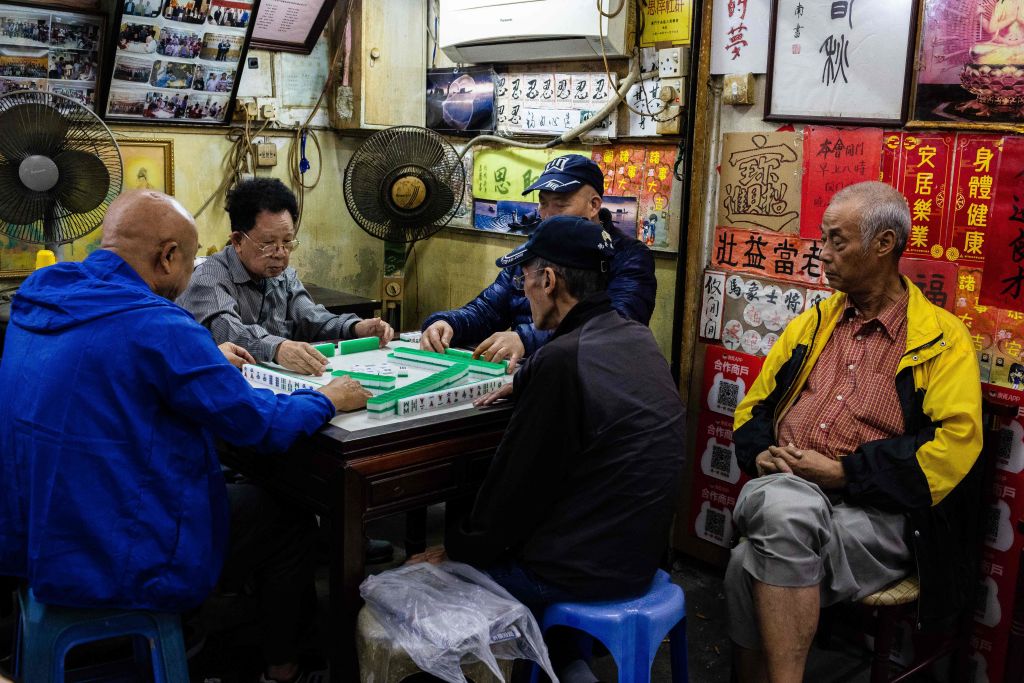Mao Zedong once said that the game of mahjong should not be underestimated, because:
‘If you know how to play it, you’ll have a better understanding of the relationship between chance and necessity. There’s philosophy in mahjong. It’s also dialectical… even if you have the worst hand, as long as you are strategic and methodical, the inferior will become superior; weakness will become strength.’
He even claimed the tile-based game was one of China’s three ‘great contributions’ to the world. Ironically, mahjong was outlawed under his rule. The early communists viewed it as an unnecessary distraction for the masses, and disliked its links to gambling and capitalism. It was not until 1985 the ban was lifted. Today the game is as popular as ever.
Walk around any street corner or a park in China and you are likely to hear the sound of tiles clacking and middle-aged men and women hunched over a rectangular board.

Get Britain's best politics newsletters
Register to get The Spectator's insight and opinion straight to your inbox. You can then read two free articles each week.
Already a subscriber? Log in







Comments
Join the debate for just $5 for 3 months
Be part of the conversation with other Spectator readers by getting your first three months for $5.
UNLOCK ACCESS Just $5 for 3 monthsAlready a subscriber? Log in